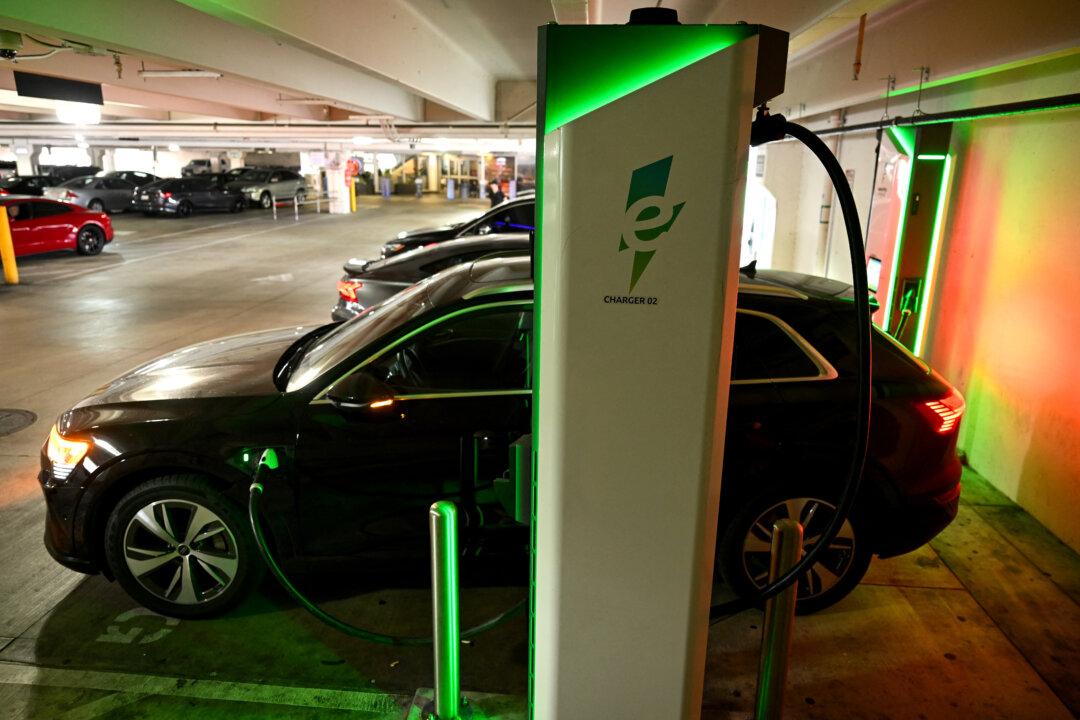California’s cap-and-trade program, which aims to cut greenhouse-gas emissions by imposing fees on the state’s energy and fuel providers, has raised $33 billion since its inception in 2006, according to Gov. Gavin Newsom.
California’s Cap-and-Trade Program Generated $33 Billion Since 2006
Fees collected from polluters pay for greenhouse gas reduction programs and other climate-friendly projects. But the program needs an extension.

An electric Audi SUV charges at a public station in Los Angeles on May 16, 2024. Patrick T. Fallon/AFP via Getty Images
Jill McLaughlin is an award-winning journalist covering politics, environment, and statewide issues. She has been a reporter and editor for newspapers in Oregon, Nevada, and New Mexico. Jill was born in Yosemite National Park and enjoys the majestic outdoors, traveling, golfing, and hiking.
Author’s Selected Articles




